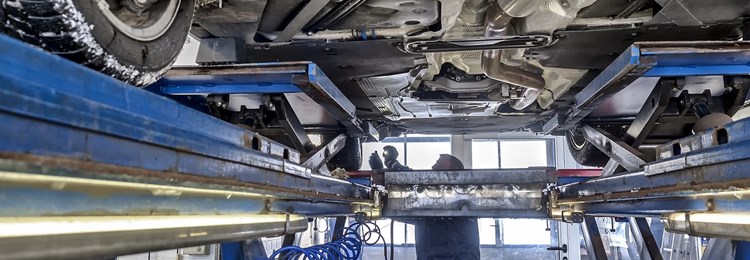
DVSA: Data sharing and MOT modernisation
Date: Thursday 31 August 2023
The DVSA has recently issued a blog statement on how they are sharing their data and how they are using it to improve road safety, alongside other updates and improvements to their safety recalls service.
Sharing data with DVSA partners
The aim is for DVSA to make its data as open and as accessible as possible to improve road safety and MOT compliance.
DVSA is in the process of updating its bulk data service, trade API, so that it enables a faster transfer of data to users. The current trade API was never designed for the volumes of users it has, and the success of the DVSA open data policy requires the service to be re-engineered in order to cope with user demand.
There are a number of different versions of the API and these will be amalgamated into one so that all the features are available for all users.
Furthermore, the new API will provide DVSA with a platform to share different data in bulk such as test logs and test quality information but this will be for the future.
Cracking down on those without an MOT
The police are one of the key users of these data and DVSA have been supporting them on Operation Tutelage, which was originally set up to crack down on insurance evasion, however they have also started to focus on those without a valid MOT.
If the police find a vehicle being driven on the road without an MOT, and the driver isn't taking the vehicle for an MOT, the motorist will be sent a nudge letter reminding them to get their vehicle tested. If this is ignored, they may be stopped by the police and be subject to a fine.
DVSA hopes that sharing this data will make it easier to crackdown on those who try and drive without a valid MOT. This will have the benefit of improving MOT compliance and improve the volume of tests conducted.
Continuing to improve the safety recalls service
Last month DVSA announced some new improvements being made to make it easier for customers to see if they’ve got a safety recall on their vehicle. Working alongside vehicle manufacturers, DVSA now has access to real-time data which means they can further improve digital services.
Changes to the MOT certificate and the MOT testing service (MTS) were introduced in July. This now means that when motorists receive their MOT certificate, it will also notify them of any outstanding safety recalls on their vehicle. The changes to MTS means that MOT testers will get prompted when performing the MOT if the vehicle has an outstanding safety recall.
Digital service improvements
DVSA is updating the Check MOT history service so that a ‘pop up’ interrupt screen will show when someone enters the registration plate number of a vehicle they know has an outstanding recall. Bringing this information to the forefront, rather than letting customers search themselves, should make it easier to stay safe and identify if the vehicle has an outstanding recall.
DVSA is also improving the MOT reminder service, which provides motorists with an automatic reminder to tell them when their MOT is due. When an MOT prompt is sent via text or email, DVSA will also now alert users if their vehicle has an outstanding recall.
Going paperless
DVSA has been clear within its strategy and vision that over the next year they want to massively reduce the amount of paper used across the agency, and within their service. Part of this includes plans to provide a digital by default option for the MOT certificate.
Moving to a digital MOT record will reduce the amount of paper used which is beneficial to the environment, whilst also making it easier for customers to access their vehicle records and view the results; if they need to view the certificate they can. DVSA is keen to devalue the certificate and encourage people to use their digital services in order to reduce paper and fraud.
User research with customers
DVSA has been carrying out user research with motorists, observing how they use the MOT history service and any barriers they face in accessing their digital certificate. The good news is that MOT history has performed well with participants, and they are now confident that, with some small improvements, the service is in the right place to help DVSA move forward with digital certificates.
A review of paper across the MOT
To make moving to a digital certificate as easy as possible, DVSA wants to review their use of paper across the MOT scheme. They are currently undertaking a review of all the paperwork that needs to be printed, or stored as hard copies, to see what is still needed and what can be done digitally.
Digitising the training log
A major project, linked to the paperless review, is the MOT training log. Currently, training logs are recorded in many ways across different sites. With no one standardised way to complete them and no centralised way to view them, it can be difficult for testers and AEs to stay on top of training logs.
DVSA has been carrying out research at several garages over the past few months to get a better understanding of how paper training logs are used and stored. They have also been canvassing views on a digital version of the training log – from how it will work, to how long it takes to fill in and where it should be accessed on MTS.
They will be issuing reports on the progress of this project and when testers can start expecting to use a digital record of training.
